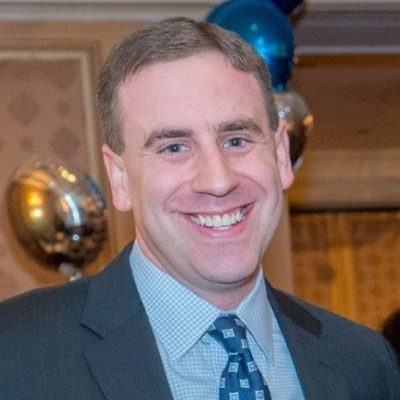Bill Drayton, founder and CEO of Ashoka, an organization that provides financial and organizational support to social entrepreneurs around the world, says that when Ashoka attempts to identify individuals to support, he asks his colleagues, “Do you deeply trust this person?”[1] Explaining the rationale behind this question, Drayton states,
…to cause fundamental social change, you are asking people to change how they do their work, how they relate to other people. You’re asking a lot of them. And if they don’t trust you, your probability of success is greatly reduced. The trustworthiness of the social entrepreneur—their integrity—is one of their most important assets. People sense that—and if they don’t trust you, they won’t follow you. They won’t make those leaps in their own lives that are necessary.[2]
According to Drayton, making systemic social change requires a commitment to personal integrity. As a rabbi, I cannot read this quote without thinking about the tension I experience between wanting to fulfill the prophetic obligation to speak out against injustice and the reality that I am not perfect, that I possess more than few moral shortcomings. At the same time, the necessity of speaking out against injustice leads me to recognize that my commitment to social change requires a continual commitment to questioning my own moral compass and to balancing healthy doses of both hope and reality.
The challenge of examining our moral choices and recognizing our successes and failures is reflected in several commentaries on the beginning of Parashat Vayetze. The parashah opens with Jacob’s magnificent encounter with God in a dream that occurred after Jacob fled his home, fearing for his life. In a provocative midrash on the Torah’s statement that the angels were “ascending and descending”[3] on a ladder going up to Heaven, our rabbis argue that the angels on the ladder represent sources of support and derision in Jacob’s life, simultaneously praising and mocking him:
R. Hiyya the Elder and R. Yannai disagreed. One maintained: They [the angels] were ascending and descending on the ladder; while the other said: they were ascending and descending on Jacob. The first view is clear. But that they were ascending and descending on Jacob must mean that some were exalting him and others chiding him, dancing, leaping, and maligning him.[4]
In this midrash, some of the angels recognize Jacob’s potential, and praise him for his Divine election, while other angels mock Jacob, and see him as nothing more than a schemer forced into exile from his family. Considering this narrative in context, Aviva Zornberg argues in Genesis: The Beginning of Desire that once Jacob pretended to be his brother Esau in order to steal the birthright and the blessing, “good and evil are intermingled in him,” and that Jacob “will be forever involved with the ambiguities of the world of seeming,” forever grappling with his childhood deception.[5] As a result, when the angels in Jacob’s dream vacillate between support and derision, they are challenging Jacob in order to see whether he will fulfill God’s covenant or be nothing more than a schemer.
Without question, Jacob’s dream affected him deeply, as he awoke and famously exclaimed, “Surely the Lord is in this place, and I did not know it!”[6] Nahum Sarna notes that Jacob’s exclamation is unprecedented in the patriarchal stories, for Abraham and Isaac never showed surprised when God revealed Godself to them.[7] As a result, Sarna argues that the message in the dream caused Jacob to recognize “the baseness of his behavior toward his father and brother,” while also revealing to him that “God is still concerned for him,” in spite of Jacob’s misspent youth.[8] At this point, Jacob might be nothing more than a schemer, yet his dream imparted to him the Divine challenge that he could be something more.
Like Jacob, we are morally complex, sometimes climbing the ladder of righteousness, and sometimes descending to the lower rungs of moral turpitude. However, if we want to fight for global justice, and especially if we want to attract others to join us, we must be willing to reflect on our own integrity, for it is difficult, if not impossible, to advocate for substantive change if we ourselves do not embody the values to which we want the world to aspire. Integrity is the universal currency in building movements to fight our most intractable challenges; the value of integrity is why Drayton probes a changemaker’s trustworthiness in order to sense the personal values behind his or her practical vision. In Parashat Vayetze, Jacob was challenged to climb the ladder of righteousness so that he might father a holy nation; may we accept the same challenge, so that we might build a more just world.
[1] David Bornstein, How to Change the World: Social Entrepreneurs and the Power of New Ideas (Oxford: Oxford University Press, 2007), 127.
[2] Ibid.
[3] Bereishit 28:12.
[4] Bereishit Rabbah 68:18. Translation from Aviva Gottlieb Zornberg, The Murmuring Deep: Reflections on the Biblical Unconscious (New York: Schocken Books, 2009), 276.
[5] Avivah Gottlieb Zornberg, Genesis: The Beginning of Desire (Philadelphia: The Jewish Publication Society, 1995), 172.
[6] Bereishit 28:16.
[7] Bereishit 28:16, in Nahum Sarna ed., The JPS Torah Commentary: Genesis (Philadelphia: The Jewish Publication Society, 1989), 199.
[8] Ibid.

